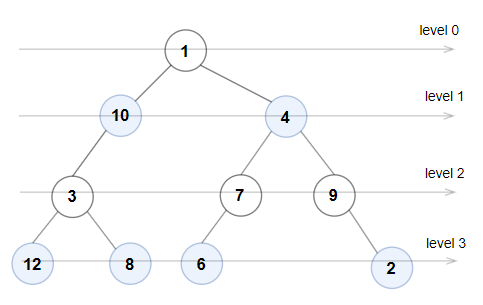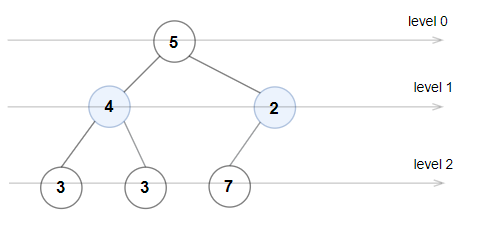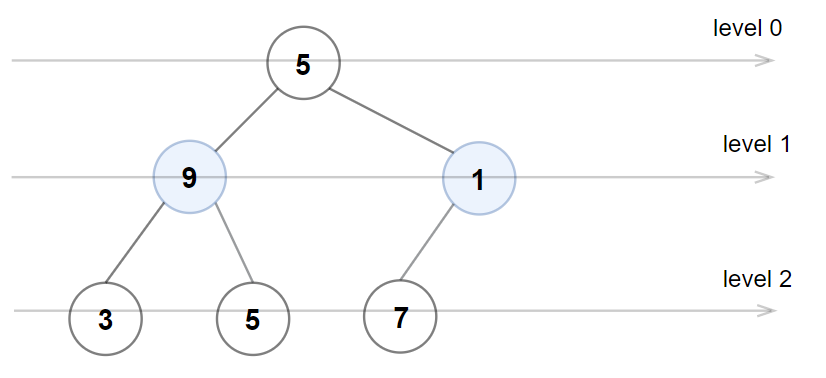1609. Even Odd Tree


Description
A binary tree is named Even-Odd if it meets the following conditions:
- The root of the binary tree is at level index
0, its children are at level index1, their children are at level index2, etc. - For every even-indexed level, all nodes at the level have odd integer values in strictly increasing order (from left to right).
- For every odd-indexed level, all nodes at the level have even integer values in strictly decreasing order (from left to right).
Given the root of a binary tree, return true if the binary tree is Even-Odd, otherwise return false.
Example 1:

Input: root = [1,10,4,3,null,7,9,12,8,6,null,null,2] Output: true Explanation: The node values on each level are: Level 0: [1] Level 1: [10,4] Level 2: [3,7,9] Level 3: [12,8,6,2] Since levels 0 and 2 are all odd and increasing and levels 1 and 3 are all even and decreasing, the tree is Even-Odd.
Example 2:

Input: root = [5,4,2,3,3,7] Output: false Explanation: The node values on each level are: Level 0: [5] Level 1: [4,2] Level 2: [3,3,7] Node values in level 2 must be in strictly increasing order, so the tree is not Even-Odd.
Example 3:

Input: root = [5,9,1,3,5,7] Output: false Explanation: Node values in the level 1 should be even integers.
Constraints:
- The number of nodes in the tree is in the range
[1, 105]. 1 <= Node.val <= 106
Solution
even-odd-tree.py
# Definition for a binary tree node.
# class TreeNode:
# def __init__(self, val=0, left=None, right=None):
# self.val = val
# self.left = left
# self.right = right
class Solution:
def isEvenOddTree(self, root: TreeNode) -> bool:
if not root: return False
q = deque()
q.append(root)
isEven = True
while q:
n = len(q)
check = []
prev = None
while n:
node = q.popleft()
val = node.val
if isEven:
if val % 2 == 0 or prev and val <= prev:
return False
else:
if val % 2 or prev and val >= prev:
return False
prev = val
for t in (node.left,node.right):
if t:
q.append(t)
n -= 1
isEven = not isEven
return True